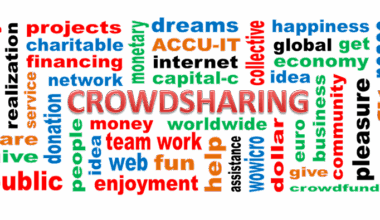Personalization Techniques in Content Marketing
Content marketing has evolved significantly, with personalization being a crucial technique in enhancing engagement. By tailoring content to individual consumers’ preferences, brands can create more impactful connections. Personalization techniques involve segmenting audiences based on demographics, behavior, purchase history, and user interests. Utilizing data analytics allows marketers to develop insights into their audience, leading to more tailored content. This targeted approach not only fosters loyalty but also enhances visibility. Implementing dynamic content, which automatically adjusts to the viewer’s profile, encourages better user experiences. Marketers find it beneficial to deploy email campaigns incorporating personalized subject lines and messages based on user behavior. Advanced segmentation strategies also make it easier for businesses to reach niche markets effectively. Moreover, personalization can extend to website experiences, dynamically showcasing content that resonates with specific users. This requires understanding user journeys, which can be obtained through various analytics tools. Overall, applying these personalization techniques leads to higher conversion rates and reduced bounce rates, helping brands stand out in a saturated market. Personalization is not merely a trend; it is an essential aspect of content marketing success today.
One effective personalization technique is the use of predictive analytics, which utilizes historical data to forecast future customer behavior. Marketers harness algorithms to analyze user interactions, focusing on preferences and purchase patterns. By doing so, businesses can tailor messages that anticipate customer needs, fostering a sense of closeness. Predictive analytics allows content creators to craft relevant articles, videos, and resources for their audiences. Furthermore, recommendation engines can analyze previous purchases and browsing behavior to suggest related products or services, enhancing the customer journey. This not only improves user satisfaction but also boosts cross-selling opportunities. Additionally, personalized customer journeys are created through targeted ads and customized landing pages, ensuring visitors arrive at content that resonates with their needs. Social media platforms also offer insights that facilitate personalized engagement strategies. By analyzing likes, shares, and comments, businesses can determine what resonates with their audience. Ultimately, these activities generate a more personalized content marketing approach that aligns with consumer desires, positively impacting user retention and brand trust, essential components in today’s competitive landscape.
Creating Relevant Content for Target Audiences
To effectively employ personalization techniques, brands must understand their target audiences deeply. Conducting comprehensive audience research provides valuable insights into customer motivations. Utilizing tools such as surveys and feedback forms allows marketers to gather qualitative data directly from consumers. Social listening tools can also monitor conversations around relevant topics to identify emerging trends. Armed with this information, businesses can create relevant content tailored to specific audience segments. Crafting buyer personas based on demographic, psychographic, and behavioral traits enhances content relevance. Once personas are created, marketers can tailor messaging to align with the unique pain points and desires of individual segments. Video content, for example, can cater to younger audiences seeking entertainment while providing educational resources for professionals. Segmenting email lists enables businesses to send targeted messages that resonate with subscribers. Personalization at scale, though challenging, can be achieved through marketing automation tools. These platforms can trigger personalized messages based on user interactions. Overall, understanding and applying audience insights is crucial for developing impactful content that speaks directly to the target audience’s needs.
Another effective strategy in personalization is leveraging user-generated content (UGC) to build community and trust. Consumers increasingly seek authenticity, and showcasing real user experiences helps brands connect on a deeper level. By encouraging customers to share reviews, testimonials, and creative content about the brand, businesses can harness genuine insights. UGC not only provides anticipated social proof but also fosters community engagement. It is an opportunity to feature content directly from the target audience, leading to genuine connections. Brands can create specific hashtags or campaigns encouraging customers to share their experiences, effectively gathering UGC. These contributions can then be cleverly integrated into websites or social media platforms, amplifying the personalization effort. Highlighting UGC creates a sense of recognition, boosting customer relationships. Furthermore, using UGC in marketing campaigns effectively drives deeper engagement and inspires brand advocacy. Customers become ambassadors, sharing their experiences, thereby enriching the brand narrative. It establishes reliability, translating into increased conversions, customer satisfaction, and brand loyalty. Incorporating UGC into personalization strategies effectively leads to authentic content that resonates with diverse audience segments.
The Role of Automation in Personalization
Automation plays a critical role in streamlining personalization techniques implemented in content marketing. By employing marketing automation software, businesses can manage large-scale campaigns with ease. This technology enables companies to deliver personalized content promptly while reducing manual efforts. Automation allows for timely responses to user actions, such as sending personalized follow-ups after customer interactions. This increases user engagement and demonstrates the brand’s attentiveness to consumer behavior. For instance, automating social media posts can facilitate audience segmentation by sharing tailored messages with specific groups at optimal times. Additionally, personalization can extend to AI-driven chatbots that engage customers in real-time with customized responses. These chatbots can collect user preferences, facilitating tailored recommendations. Furthermore, automated email marketing allows for customized content that aligns with customers’ interests. Marketers can schedule emails based on user activity and preferences, reinforcing the importance of personalized engagement. By integrating automation into personalization strategies, businesses can scale efforts effectively without diminishing quality. This leads to enhanced user experiences, higher conversion rates, and improved customer retention.
Measuring the effectiveness of personalization techniques is essential for optimizing content marketing strategies. Marketers should track key performance indicators (KPIs) to evaluate success accurately. Metrics such as open rates, click-through rates, and conversion rates provide insights into user engagement levels. Implementing A/B testing allows for experimentation with different personalized messages to determine what resonates best with audiences. Analyzing customer feedback also contributes valuable insights, guiding content refinement efforts. Moreover, utilizing analytics tools helps in understanding user interactions with personalized content, offering further optimization opportunities. By examining website traffic, bounce rates, and social media engagement metrics, marketers can gauge user behavior effectively. Adjusting strategies based on real-time data ensures that personalized content remains relevant and impactful. Tracking customer lifetime value (CLV) is another key metric, helping businesses measure the long-term success of their personalization efforts. Implementing a feedback loop is vital for continuous improvement, allowing brands to adapt their strategies based on changing consumer expectations. Ultimately, ongoing measurement of personalization strategies is crucial for sustained content marketing success.
Future Implications of Personalization in Content Marketing
As technology continues to advance, the future of personalization in content marketing looks promising. Emerging technologies like artificial intelligence and machine learning are set to enhance personalization capabilities significantly. These technologies enable hyper-personalization, where content creation and distribution can be tailored at an individual level. This evolution will allow brands to analyze vast amounts of data to create incredibly precise consumer profiles. The increased focus on privacy will compel marketers to develop transparent personalization practices, ensuring user trust. Businesses are likely to invest in tools that respect consumer consent while providing personalized experiences. Moreover, voice search and smart devices will influence content creation, requiring marketers to adapt strategies accordingly. In an era where consumer expectations continue to evolve, delivering consistent and personalized experiences across all platforms becomes essential. Brands will have to move beyond basic personalization tactics to incorporate innovative approaches, utilizing user data responsibly. The landscape will demand creativity, driving brands to explore new formats and content types that resonate with audiences. In conclusion, the future of personalization in content marketing requires adaptability, innovation, and a consumer-first mindset.
In summary, adopting personalization techniques in content marketing is vital for brands looking to forge deeper connections with their audience. By employing various methods, including predictive analytics, user-generated content, and effective automation, marketers can deliver highly relevant experiences. Understanding the target audience through research and the application of consumer insights allows for the design of tailored content. Furthermore, measuring the efficacy of personalization strategies using KPIs ensures continual improvement. As businesses prepare for the future, leveraging technology will play a crucial role in enhancing personalization efforts. The evolving landscape demands a creative and adaptive approach to meet consumer expectations while maintaining authenticity. As personalization becomes increasingly integral to content marketing, it will serve not only to enhance engagement but also to establish brand loyalty. Consumers seek brands that truly resonate with them, and personalization is key to achieving this goal. A proactive approach to developing personalized content will set businesses apart in competitive marketplaces. Therefore, brands should embrace and implement these techniques to thrive in today’s ever-changing digital environment.


